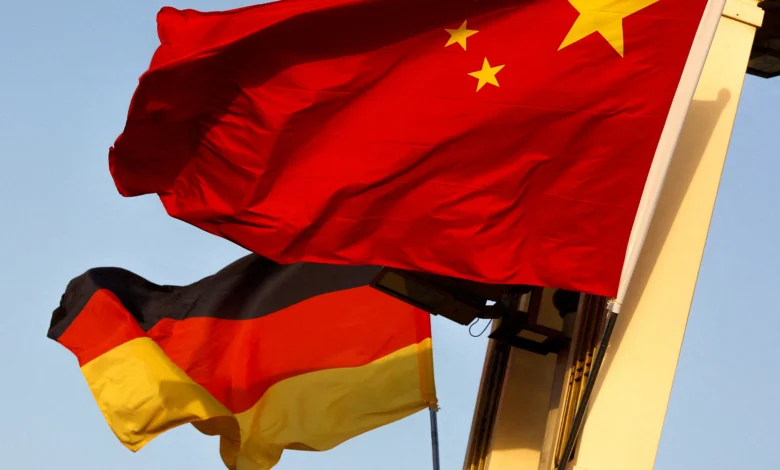Ahead of Scholz trip, study shows German economy still dependent on China

THE German economy is still highly dependant on China for a number of products and raw materials despite efforts to diversify to other markets, a study by the German Economic Institute showed on Tuesday (Apr 9).
While overall imports from China dropped by nearly a fifth between 2022 and 2023, the share of product groups for which Germany relies on China for more than half of its imports has barely changed, including chemicals, computers and solar cells.
For some categories, such as pharmaceuticals and rare earths such as scandium and yttrium, Germany’s dependence has increased.
“A clear structural de-risking – in the sense of a continuing trend towards further significant declines in imports – is therefore not yet apparent,” the study said.
Some 73 product groups were removed from the list of goods for which Germany relies heavily on China but a similar number was added in their place, meaning the total number fell only slightly to 200 from 213.
The study was published ahead of Chancellor Olaf Scholz’s trip to China this week, with companies pressing for what they characterise as fairer access to the Chinese market and Europe worried about Chinese excess capacity flooding its market.
GET BT IN YOUR INBOX DAILY

Start and end each day with the latest news stories and analyses delivered straight to your inbox.
The trip is Scholz’s first to China since Berlin drew up a China strategy last year that urged a “de-risking” to reduce economic exposure to the world’s second-largest economy, but was vague on specific measures or binding targets.
Germany has become increasingly wary of tethering itself to a country it has described as both a partner and a systemic rival, in particular after Russia’s invasion of Ukraine in 2022 laid bare Europe’s reliance on Russian gas shipments.
Scholz will take with him chief executives from the likes of Siemens and Mercedes, as well as Cabinet ministers, underscoring Beijing’s continued importance. REUTERS





